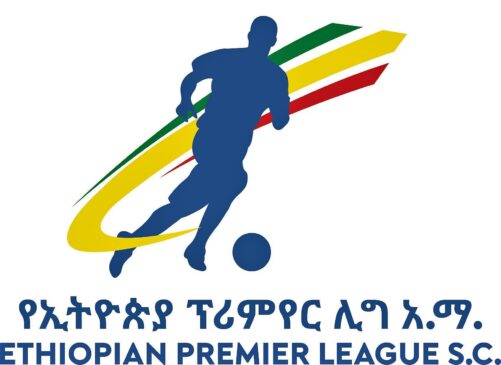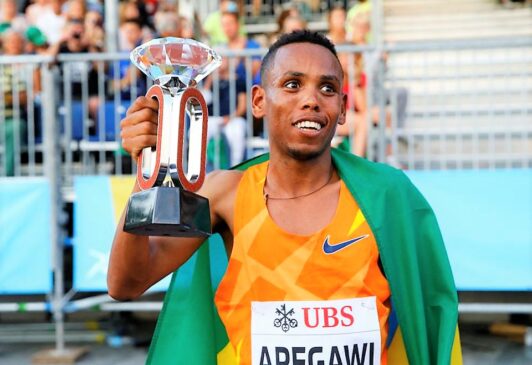Second season of televised Ethiopian Premier League action could usher in a new sporting era
By Ebawak Tesfaye
When Ethiopia put pen to paper on a historic broadcast deal in 2019, a decades’ old query of Ethiopian football fans appears to have finally been addressed. For the first time in its history, top flight Ethiopian football matches were finally made available to television audiences. The Ethiopian Premier League inked a five-year $13 million agreement with South African broadcaster DSTV ensuring that the best of the local game could be watched by audiences across the continent, putting an end to decades of frustration among local fans, broken promises, and excuses for the embarrassing inability to secure television broadcasts for the country’s local game.
After a successful debut season of televised football, Ethiosports took a look back on what the deal brought Ethiopian football and what fans are hoping can be further enhanced during the ongoing second season of televised Ethiopian Premier League action.
Despite only securing broadcast coverage in 2019, Ethiopia’s local game has a long and storied history. Ethiopia formally organized its own national league in 1944, long before most African states had even secured independence and thirteen years before the formation of the continent’s football governing body, CAF (Confederation of African Football). It sets the foundation for Ethiopia becoming a football mad country, despite its prowess in long distance running.
As a pioneer of the African game, the local league was among the continent’s most competitive. Large crowds have been packing the capital city’s Addis Ababa Stadium to watch local matches as far back as the fifties. With a solid foundation built for national team success, Ethiopia went on to win the 1962 African Cup of Nations on home soil, its first and only major continental honor.
Despite the early success, Ethiopian football went on a steep decline. For the better part of three decades until 2012, Ethiopia’s senior national team failed to reach the finals of a major international tournament. The quality of the league dipped considerably.
 In an effort to return football to its glory days, the Ethiopian Football Federation (EFF) rolled out the current Ethiopian Premier League format in 1997. However, there was little change. Another low point came in 2008, when transparency issues with the Ethiopian Football Federation saw the country barred by FIFA from international football, which prematurely ended the country’s hopes of qualifying for the 2010 FIFA World Cup. In addition to blunders by the federation, hooliganism, corruption, poor pitch standards also contributed their share to the pitiful state of football in the country.
In an effort to return football to its glory days, the Ethiopian Football Federation (EFF) rolled out the current Ethiopian Premier League format in 1997. However, there was little change. Another low point came in 2008, when transparency issues with the Ethiopian Football Federation saw the country barred by FIFA from international football, which prematurely ended the country’s hopes of qualifying for the 2010 FIFA World Cup. In addition to blunders by the federation, hooliganism, corruption, poor pitch standards also contributed their share to the pitiful state of football in the country.
Ethiopia finally broke its major international tournament duck when it reached the 2013 AFCON, its first since last qualifying for the 1982 edition. To build on recent successes, mining the untapped potential of the local league had be a priority. Few things capture the passion of Ethiopians the way football does. While local newspapers and radio stations are awash with news of European football, the local league was covered in scarcity and lacked investment. With team sports, television broadcasting rights constitute a major source of revenue. Realizing that television networks would allocate a substantial amount of money on sports, initiatives were put in place to court them.
This partially led to the establishment of Ethiopian Premier League’s business entity, the Ethiopian Premier League Share Company (EPLSC). Tasked with overseeing league competition and generating sustainable revenue for top flight clubs, it is a separate entity from the country’s football federation which is mandated with setting regulations.
With this shift, the share company awarded exclusive rights for broadcasting to DSTV’s SuperSport. It also reached a deal with multinational football betting corporation BetKing to sponsor the Ethiopian Premier League, which is now known as the Betking Ethiopian Premier League.
Local broadcasters Ethiopian Broadcasting Corporation (EBC), EBS and France’s Canal+ were amongst those who unsuccessfully placed bids for the television rights.
To prevent disputes over income irregularities the share company opened the doors to entities obtaining the digital rights to BetKing Premier League games. Clubs demanded the reform and were also the centerpiece of this deal.
 The initial direct investments from SuperSport and BetKing are to run from 2020 to 2025. The deal called for the entire revenue to be split up among participating clubs. A press release issued by the share company indicated that out of the $4 MILLION (163 Million birr) revenue earned during the 2019-20 season, 60% was divided equally among the thirteen participating clubs, 25% was awarded to clubs based on where they finished in the league and 15% went to the league company. Furthermore, the aim of the investment from SuperSport is to continue building sports broadcasting capability in Ethiopia.
The initial direct investments from SuperSport and BetKing are to run from 2020 to 2025. The deal called for the entire revenue to be split up among participating clubs. A press release issued by the share company indicated that out of the $4 MILLION (163 Million birr) revenue earned during the 2019-20 season, 60% was divided equally among the thirteen participating clubs, 25% was awarded to clubs based on where they finished in the league and 15% went to the league company. Furthermore, the aim of the investment from SuperSport is to continue building sports broadcasting capability in Ethiopia.
While Ethiopian football entered the era of televised and digital rights, a number of other issues were brought back into the limelight. Among them, bad refereeing, match-fixing concerns, prestigious clubs dissolving over financial woes, fixture scheduling congestion to name a few.
The league’s administration ought to deal with these and other issues, especially with audiences from around Africa tuning in. In addition to securing revenue, the endeavour could as a whole, lead to the development of the local game, and enhance the country’s odds of achieving footballing success, a rarity for decades. It is a step forward without a doubt but would require a combined effort by the share company, the federation, clubs and the fans.
Organizational achievements of the Ethiopian Premier League Share Company thus far, speak volumes about the importance of having the right people leading the league. African football correspondents have reported that Ethiopian Premier league is competing in viewership with some European league games broadcasted by DSTV. Both the share company and the broadcaster are satisfied with what they have seen in year one and this can be used as a springboard to build on further success.
Former national team captain and three time league winner Adane Girma, who is currently retired, praised the league company’s successful kick off season during the 2020-21 season award ceremony and had a message for the current league players.
“In the past we did not have this opportunity. A lot of players had the talent to go abroad and play but agents always asked for match videos. We never had them. So nothing ever materialized. You players are lucky; now everyone can see your talent on television. Grab the opportunity!”
Adane was a key player of the Ethiopian team that qualified for the 2013 African Cup of Nations, reaching the showpiece tournament after 31 years.
Call it a coincidence but less than a year after the introduction of television rights, Ethiopia qualified for next year’s 2022 African Cup of Nations, achieving qualification for the second time in 40 years. The ‘TV rights era’ is being heralded as a new era in Ethiopian football. Fans are hopeful this era will see a rise in the honing of local talents from the league, who could go on to play abroad and bolster the national team. Ethiopian football fans may finally have reason to be hopeful.




